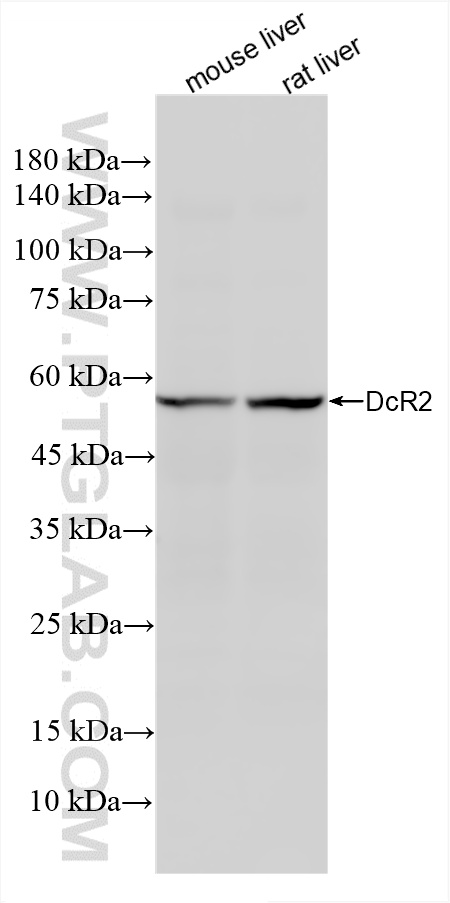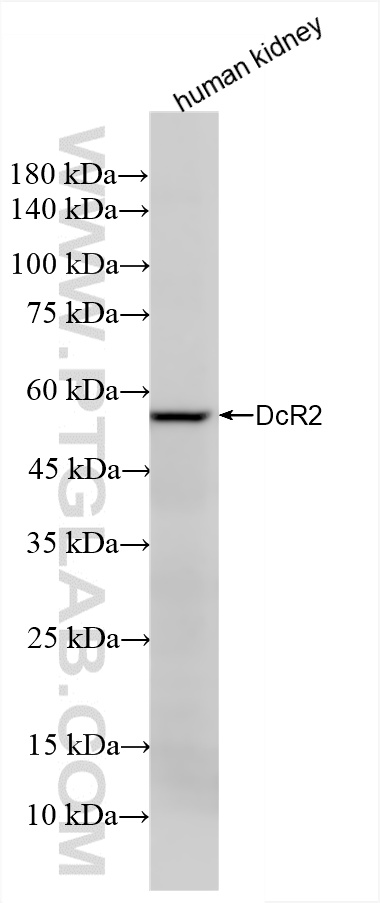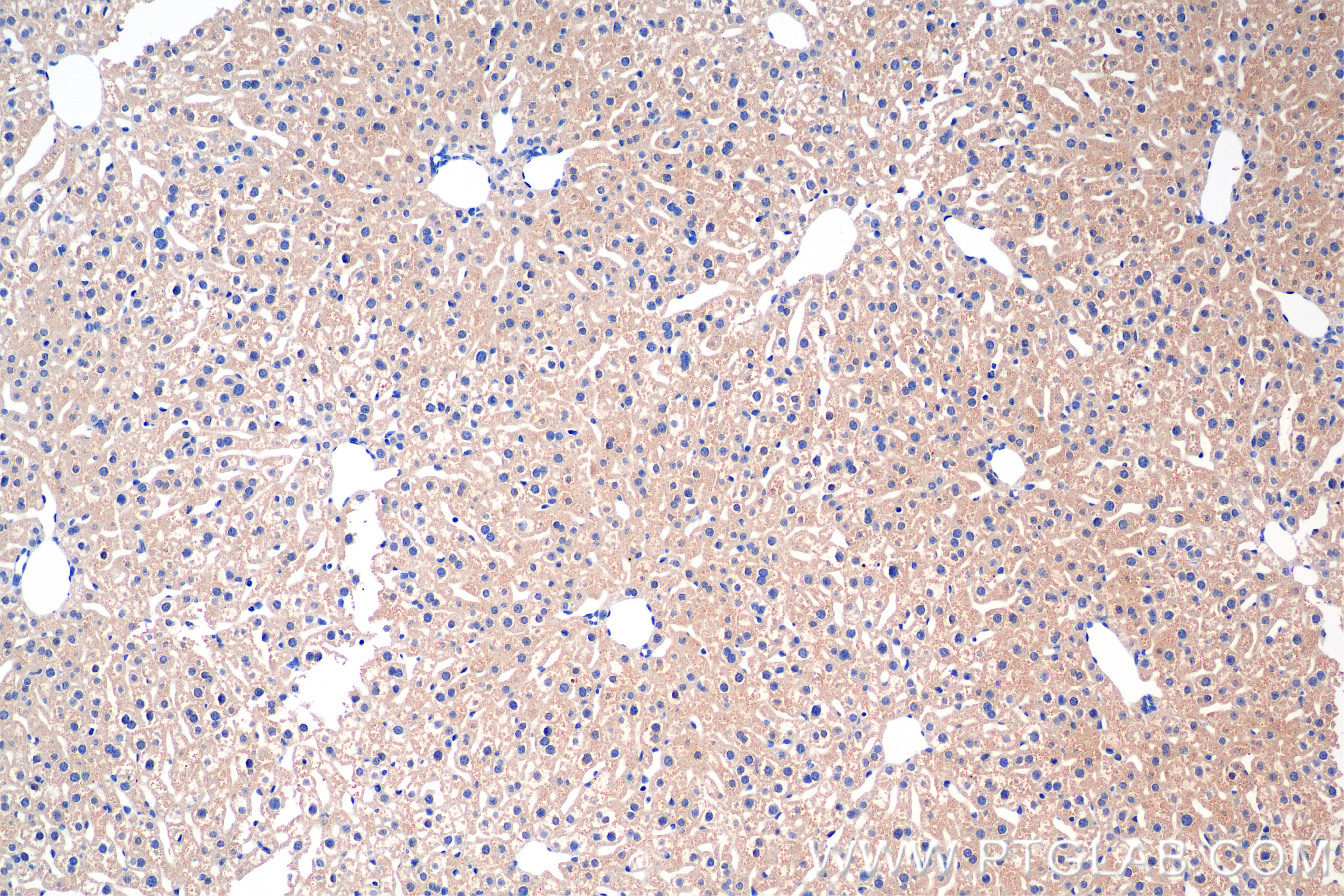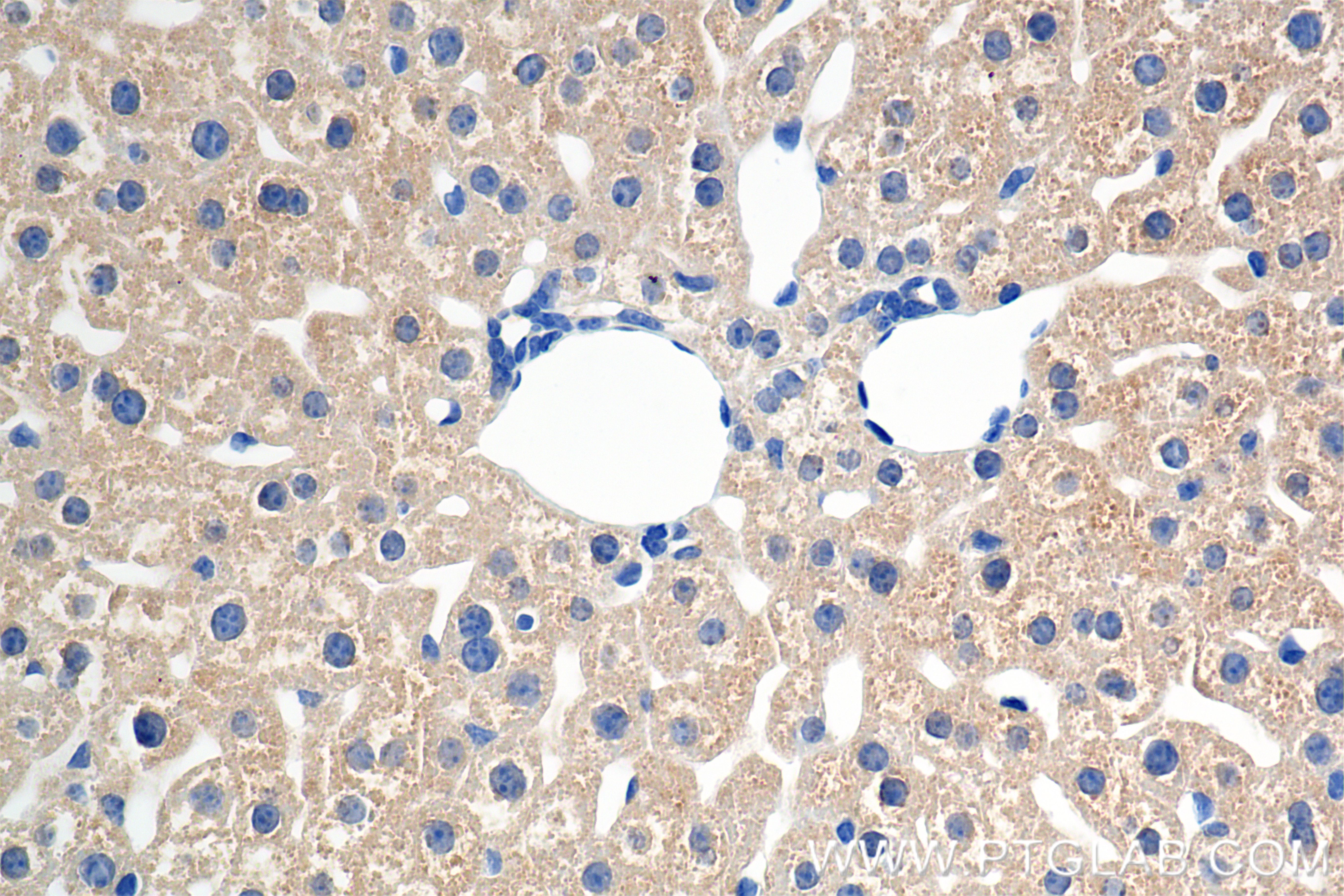验证数据展示
经过测试的应用
| Positive WB detected in | human kidney tissue, mouse liver tissue, rat liver tissue |
| Positive IHC detected in | mouse liver tissue Note: suggested antigen retrieval with TE buffer pH 9.0; (*) Alternatively, antigen retrieval may be performed with citrate buffer pH 6.0 |
推荐稀释比
| 应用 | 推荐稀释比 |
|---|---|
| Western Blot (WB) | WB : 1:500-1:2000 |
| Immunohistochemistry (IHC) | IHC : 1:250-1:1000 |
| It is recommended that this reagent should be titrated in each testing system to obtain optimal results. | |
| Sample-dependent, Check data in validation data gallery. | |
产品信息
85425-2-RR targets DcR2 in WB, IHC, ELISA applications and shows reactivity with human, mouse, rat samples.
| 经测试应用 | WB, IHC, ELISA Application Description |
| 经测试反应性 | human, mouse, rat |
| 免疫原 |
CatNo: Eg3487 Product name: Recombinant Human DcR2 protein (rFc Tag) Source: mammalian cells-derived, pHZ-KIsec-C-rFc Tag: C-rFc Domain: 56-211 aa of NM_003840.5 Sequence: ATIPRQDEVPQQTVAPQQQRRSLKEEECPAGSHRSEYTGACNPCTEGVDYTIASNNLPSCLLCTVCKSGQTNKSSCTTTRDTVCQCEKGSFQDKNSPEMCRTCRTGCPRGMVKVSNCTPRSDIKCKNESAASSTGKTPAAEETVTTILGMLASPYH 种属同源性预测 |
| 宿主/亚型 | Rabbit / IgG |
| 抗体类别 | Recombinant |
| 产品类型 | Antibody |
| 全称 | tumor necrosis factor receptor superfamily, member 10d, decoy with truncated death domain |
| 别名 | CD264, Decoy receptor 2, TNF-related apoptosis-inducing ligand receptor 4, TNFRSF10D, TRAIL R4 |
| 计算分子量 | 42 kDa |
| 观测分子量 | 50-55 kDa |
| GenBank蛋白编号 | NM_003840.5 |
| 基因名称 | DcR2 |
| Gene ID (NCBI) | 8793 |
| 偶联类型 | Unconjugated |
| 形式 | Liquid |
| 纯化方式 | Protein A purification |
| UNIPROT ID | Q9UBN6 |
| 储存缓冲液 | PBS with 0.02% sodium azide and 50% glycerol, pH 7.3. |
| 储存条件 | Store at -20°C. Stable for one year after shipment. Aliquoting is unnecessary for -20oC storage. |
背景介绍
Decoy receptor 2 (DcR2) is a member of the tumor necrosis factor receptor (TNFR) superfamily. It functions as a decoy receptor for TNF-related apoptosis-inducing ligand (TRAIL), thereby inhibiting TRAIL-mediated apoptosis (PMID: 15538968; 9537512). It has been considered a tentative marker of cellular senescence (PMID: 16079833; 22751116). Additionally, DCR2 has been implicated in the regulation of renal fibrosis and cell senescence, contributing to the pathogenesis of diabetic nephropathy (PMID: 35661704).
实验方案
| Product Specific Protocols | |
|---|---|
| IHC protocol for DcR2 antibody 85425-2-RR | Download protocol |
| WB protocol for DcR2 antibody 85425-2-RR | Download protocol |
| Standard Protocols | |
|---|---|
| Click here to view our Standard Protocols |





